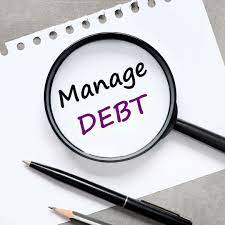 South Florida, with its vibrant culture, stunning beaches, and dynamic economy, is also a region where many residents grapple with credit card debt. The high cost of living in Fort Lauderdale FL, coupled with economic fluctuations, can lead to financial instability for individuals and families. However, there are numerous strategies and resources available to help tackle credit card debt and regain financial stability. Here are some effective ways to manage and reduce credit card debt in South Florida.
South Florida, with its vibrant culture, stunning beaches, and dynamic economy, is also a region where many residents grapple with credit card debt. The high cost of living in Fort Lauderdale FL, coupled with economic fluctuations, can lead to financial instability for individuals and families. However, there are numerous strategies and resources available to help tackle credit card debt and regain financial stability. Here are some effective ways to manage and reduce credit card debt in South Florida.
1. Create a Realistic Budget
The first step in tackling credit card debt is to create a detailed and realistic budget. Assess your income and expenses, identifying areas where you can cut back. South Florida’s cost of living can be high, but by tracking every expense, you can find ways to save. Prioritize essentials such as housing, utilities, and groceries, and allocate a portion of your budget towards paying down your credit card debt.
2. Utilize Balance Transfer Cards
Balance transfer credit cards can be an effective tool to manage debt. These cards offer low or zero interest rates for an introductory period, allowing you to transfer high-interest balances from other credit cards. This can significantly reduce the amount of interest you pay, enabling you to pay down your principal more quickly. Ensure you understand the terms and fees associated with balance transfer cards to maximize their benefit.
3. Consider Debt Consolidation Loans
Debt consolidation loans can simplify the repayment process by combining multiple debts into a single loan with a lower interest rate. This can make it easier to manage payments and reduce the total interest paid over time. South Florida has several financial institutions and credit unions offering competitive rates on consolidation loans. Before committing, compare offers to find the best terms suited to your financial situation.
4. Work with a Credit Counselor
Nonprofit credit counseling agencies can provide valuable assistance in managing credit card debt. These agencies offer services such as budgeting advice, debt management plans, and financial education. In South Florida, organizations like Debt Consolidation Florida provide personalized counseling to help residents develop strategies to pay down debt and improve financial literacy.
5. Negotiate with Creditors
Many creditors are willing to negotiate with borrowers facing financial difficulties. Contact your credit card issuers to discuss options such as reduced interest rates, waived fees, or extended payment plans. Demonstrating your commitment to repaying the debt can often result in more favorable terms. Be honest about your financial situation and propose a realistic repayment plan.
6. Increase Your Income
Boosting your income can accelerate the process of paying down credit card debt. South Florida offers various opportunities for side gigs and part-time jobs, from the gig economy to seasonal tourism-related work. Consider freelance opportunities, selling unused items, or taking on extra shifts at work. The additional income can be directly applied to reducing your debt, helping you achieve financial freedom faster.
7. Adopt the Snowball or Avalanche Method
Two popular strategies for paying off multiple credit card debts are the snowball and avalanche methods. The snowball method involves paying off the smallest debt first while making minimum payments on the others. This creates a sense of accomplishment and motivation to continue. The avalanche method focuses on paying off the debt with the highest interest rate first, saving more money on interest in the long run. Choose the method that best suits your personality and financial goals.
8. Avoid Accumulating More Debt
While paying off existing debt, it’s crucial to avoid accumulating more. Resist the temptation to use credit cards for discretionary purchases. Stick to your budget, use cash or debit cards for everyday expenses, and consider leaving your credit cards at home. This discipline will prevent further debt accumulation and reinforce positive financial habits.
9. Seek Professional Financial Advice
A financial advisor can provide personalized guidance tailored to your unique situation. Advisors can help you develop a comprehensive debt repayment plan, optimize your budget, and offer investment strategies for long-term financial health. South Florida is home to many qualified financial advisors who understand the regional economic landscape and can provide valuable insights.
10. Utilize Local Resources and Support
South Florida has numerous local resources and support networks for individuals struggling with credit card debt. Community centers, nonprofits, and local government programs often offer financial literacy workshops, debt management classes, and emergency financial assistance. Engaging with these resources can provide additional support and education to help you navigate your debt repayment journey.
Credit card debt can be overwhelming, but with the right strategies and resources, it is manageable. South Florida residents have access to a variety of tools and support systems designed to help them tackle debt and achieve financial stability. By creating a budget, utilizing financial products wisely, seeking professional advice, and taking advantage of local resources, individuals can effectively manage and reduce their credit card debt. Empower yourself with knowledge and take proactive steps towards a debt-free future.

